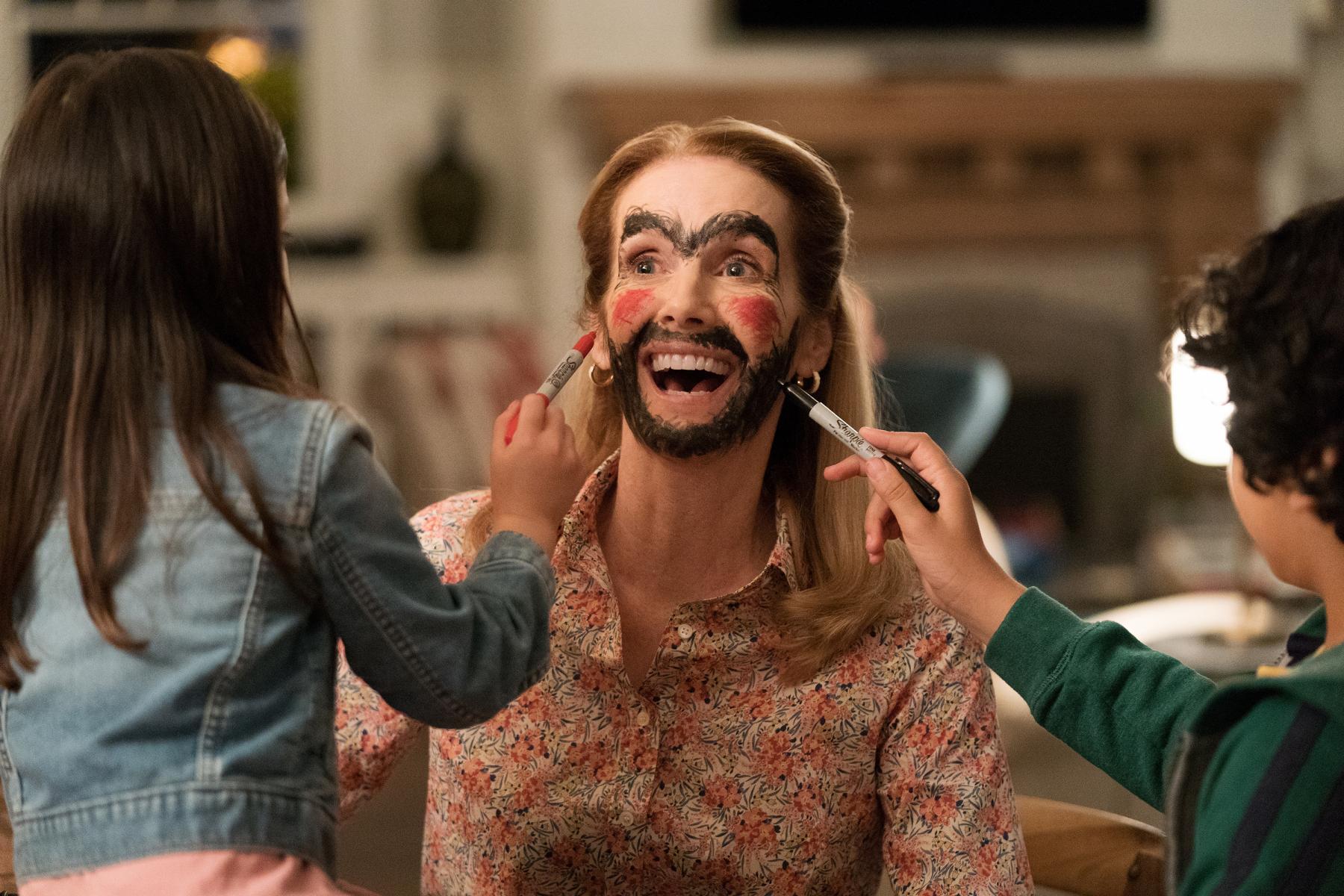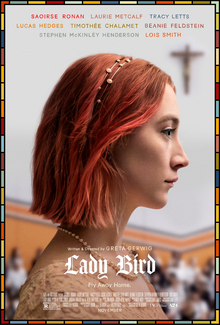

Photo by Film Affinity
The best way to summarize the underlying message of the 2018 film Instant Family is with this quote: ‘It is not blood that makes you family, it is love.’
Instant Family is based on the film’s director and writer Sean Anders’ true story, and brings attention to the foster care system in the United States. There is a notable prevalence of humor that lightens what is otherwise a sensitive situation, but it is done without taking away from the purpose of the film. The film touches on a broad range of topics relating to fostering which allows for a more holistic understanding of the feelings of the different stakeholders involved in the process.
Pete and Ellie Wagner are a married couple who buy and fix up old houses. They are content with the way their lives are, but after a mocking conversation with Ellie’s sister about Pete and Ellie never having kids, they decide to attend an introduction to enrolling in foster care led by social workers Sharon and Karen. Convinced after hearing the moving story of Brenda, a foster child turned into adoptee, Pete and Ellie sign up for the foster care classes and ultimately attend the foster fair which attempts to match foster parents with kids.
At the fair they run into Lizzie, a fifteen year old Hispanic teen, who leaves an impression on the couple. Their interaction with Lizzie depicts to the viewers the reality of being a teenager in the foster system; most foster parents are keen on fostering small children that they can eventually adopt one day. Pete and Ellie disclose to Sharon and Karen that they are interested in Lizzie, but the social workers inform the couple that Lizzie comes with two younger siblings, Juan and Lita. It is also revealed that Lizzie, Juan, and Lita’s mother is a drug addict who is in jail.
A meeting is arranged between Pete and Ellie and the three kids at their current foster home. The impact that a poor foster home can have on the kids is depicted in this scene, when it’s clear Lizzie dislikes the couple they are currently with, but puts up a brave face. For psychologists interested in the film, this scene, along with others, highlights a key idea that needs to be better addressed: how can the government better support the development of kids in foster care that experience an unstable childhood given the understaffed and underfunded nature of the organization?
Another idea that the movie explores is that of ‘white savior’, which was a concern for Ellie, and presumably introduced in the film as a concept targeted towards people in the real world that have negative opinions of a white-person providing help to a non-white person in an adoption scenario. Karen addresses this perfectly with the quote ‘And listen, you’re going to get some funny looks. And people are going to say some stupid shit. But if you’re willing to love these kids, who need a mom and dad, and somebody has a problem with that, you just ask them how many goddamn kids they’ve adopted.’ The film also does a good job of featuring different kinds of people looking into fostering and adoption, such as a gay couple, a single woman, and such, which makes the watch more relatable to a wider audience.
Overall, what really stood out to me about Instant Family is that the film does not paint fostering and adoption as a rosy picture. While I’m sure the reality of it is much harder than the film displayed, it still doesn’t sugar coat the amount of self-discovery, compromise, and love that goes into taking care of kids. The viewer gets to go through the journey of going from 0 to 3 kids overnight with Pete and Ellie, and can experience all the emotions that come with it. I highly recommend this film for everyone to watch: the comedy, reality, and drama makes it hard not to fall into the plot of the story while still deeply understanding the message. As Brenda’s mother said in the film about fostering, ‘This is never going to be easy. But with some structure and love, you can make your house a home.’
Directed by: Sean Anders
Instant Family is now available on most online movie platforms

Photo by Film Affinity
The best way to summarize the underlying message of the 2018 film Instant Family is with this quote: ‘It is not blood that makes you family, it is love.’
Instant Family is based on the film’s director and writer Sean Anders’ true story, and brings attention to the foster care system in the United States. There is a notable prevalence of humor that lightens what is otherwise a sensitive situation, but it is done without taking away from the purpose of the film. The film touches on a broad range of topics relating to fostering which allows for a more holistic understanding of the feelings of the different stakeholders involved in the process.
Pete and Ellie Wagner are a married couple who buy and fix up old houses. They are content with the way their lives are, but after a mocking conversation with Ellie’s sister about Pete and Ellie never having kids, they decide to attend an introduction to enrolling in foster care led by social workers Sharon and Karen. Convinced after hearing the moving story of Brenda, a foster child turned into adoptee, Pete and Ellie sign up for the foster care classes and ultimately attend the foster fair which attempts to match foster parents with kids.
At the fair they run into Lizzie, a fifteen year old Hispanic teen, who leaves an impression on the couple. Their interaction with Lizzie depicts to the viewers the reality of being a teenager in the foster system; most foster parents are keen on fostering small children that they can eventually adopt one day. Pete and Ellie disclose to Sharon and Karen that they are interested in Lizzie, but the social workers inform the couple that Lizzie comes with two younger siblings, Juan and Lita. It is also revealed that Lizzie, Juan, and Lita’s mother is a drug addict who is in jail.
A meeting is arranged between Pete and Ellie and the three kids at their current foster home. The impact that a poor foster home can have on the kids is depicted in this scene, when it’s clear Lizzie dislikes the couple they are currently with, but puts up a brave face. For psychologists interested in the film, this scene, along with others, highlights a key idea that needs to be better addressed: how can the government better support the development of kids in foster care that experience an unstable childhood given the understaffed and underfunded nature of the organization?
Another idea that the movie explores is that of ‘white savior’, which was a concern for Ellie, and presumably introduced in the film as a concept targeted towards people in the real world that have negative opinions of a white-person providing help to a non-white person in an adoption scenario. Karen addresses this perfectly with the quote ‘And listen, you’re going to get some funny looks. And people are going to say some stupid shit. But if you’re willing to love these kids, who need a mom and dad, and somebody has a problem with that, you just ask them how many goddamn kids they’ve adopted.’ The film also does a good job of featuring different kinds of people looking into fostering and adoption, such as a gay couple, a single woman, and such, which makes the watch more relatable to a wider audience.
Overall, what really stood out to me about Instant Family is that the film does not paint fostering and adoption as a rosy picture. While I’m sure the reality of it is much harder than the film displayed, it still doesn’t sugar coat the amount of self-discovery, compromise, and love that goes into taking care of kids. The viewer gets to go through the journey of going from 0 to 3 kids overnight with Pete and Ellie, and can experience all the emotions that come with it. I highly recommend this film for everyone to watch: the comedy, reality, and drama makes it hard not to fall into the plot of the story while still deeply understanding the message. As Brenda’s mother said in the film about fostering, ‘This is never going to be easy. But with some structure and love, you can make your house a home.’
Directed by: Sean Anders
Instant Family is now available on most online movie platforms



